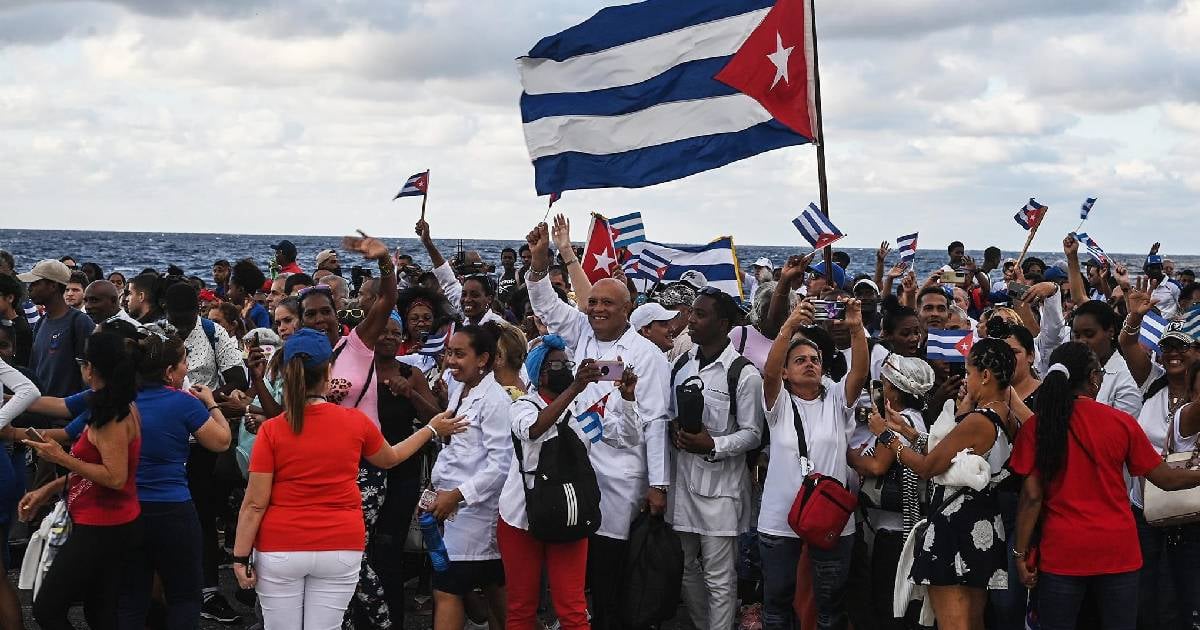
Related videos:
With the polarizing and ironic tone characteristic of Cuban leaders, the president of the Supreme Court of Cuba, Rubén Remigio Ferro, stated that over a million Cubans participated in the so-called "march of the combatant people," which took place on December 20th.
"How could we not feel proud to be Cuban! Do you want to talk about democracy? Tell me something about this march with over a million people? Forced? Give me a break!" wrote the Cuban official on the social media platform X.
His post received criticism from many Cubans who, in the comments, expressed their views about the inflated number of attendees reported by the Cuban state authorities for that event.
"And what did those four rams marching decide? Because all the fuel for those buses was taken from the small towns in the interior of Cuba, where we had 18 hours of blackout that day," stated an internet user.
Another person questioned him, "Are you sure there were more than a million people? And if we want to talk about democracy, unless you believe that democracy is about loading people onto buses to participate in a march where there weren't a million people."
"Democracy: if you were absent, you were penalized at work by having several days' pay deducted, and as a student, you faced a disciplinary record. All very democratic," noted a user.
According to an analysis published by CiberCuba, images and technical data from the march indicate that actual attendance was significantly lower than the official figure. It is estimated that between 30,000 and 50,000 people participated, far from the over 500,000 reported by the Cuban government.
Furthermore, it has been reported that many of the attendees were obliged to participate through their workplaces or educational institutions, a common tactic in events of this nature.
Images released revealed how some workers were transported in trucks used for other purposes to the march site, highlighting the precarious conditions in which many participants were moved.
Contradictions have also been noted in official statements and the government narrative, characterizing the event as part of a propaganda strategy aimed at diverting attention from the economic and social issues facing the country.
Frequently Asked Questions about the March of the Combatant People and the Situation in Cuba
How many people actually participated in the March of the Fighting People?
Although the Cuban government claimed that more than a million people participated, independent analyses estimate that the actual figure was between 30,000 and 50,000 attendees. The official data has been called into question due to its lack of accuracy and propagandistic manipulation.
What criticisms has the Cuban government faced regarding the organization of the march?
The Cuban government has been criticized for manipulating participation figures and forcing citizens to attend through their workplaces and educational institutions. Additionally, it is accused of using the march as a distraction from the severe economic and social crisis the country is facing.
Why is the march considered a propaganda act?
The march has been viewed as a propaganda act because, instead of addressing the country's urgent issues, such as food shortages and blackouts, the government uses these events to project a false image of popular support and unity.
How has the Cuban population reacted to the call for the march?
The Cuban population has reacted with discontent and rejection towards the march, viewing it as an imposition rather than a genuine expression of support. On social media, they have expressed their frustration and skepticism regarding the official figures and the lack of real solutions to the crisis.
Filed under: